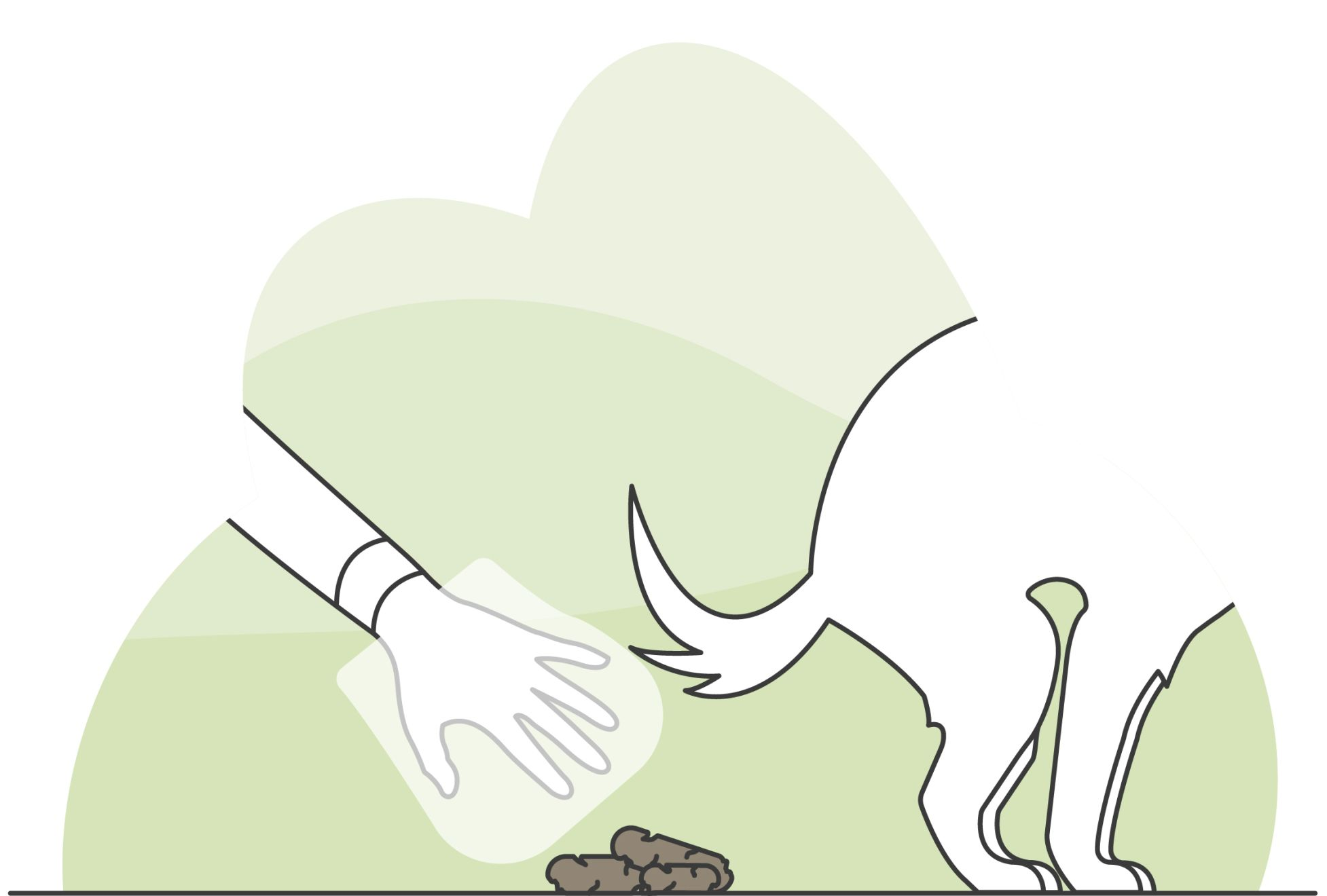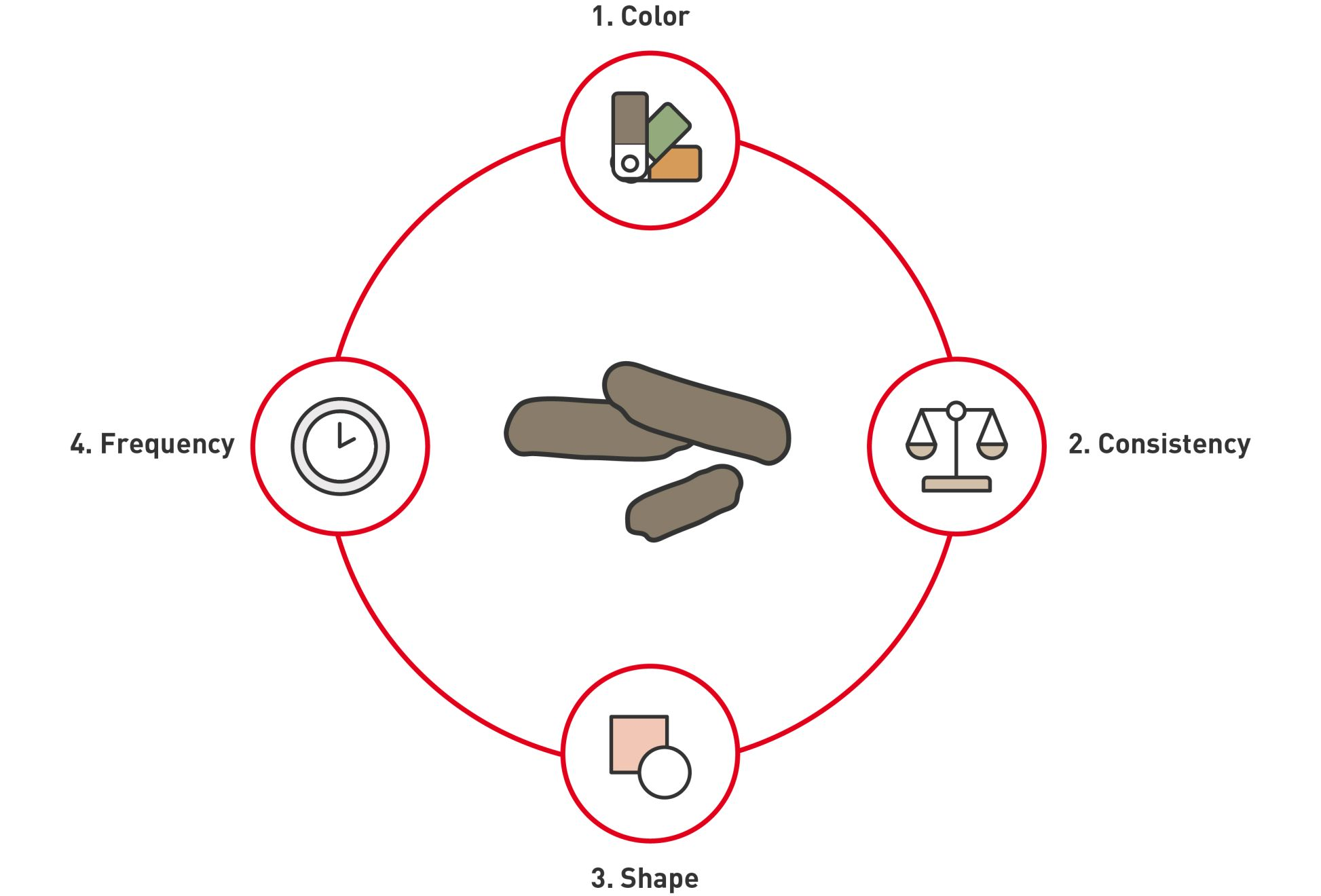What is your dog's poop telling you?
Article

As a pet owner, picking up your dog's poop is a regular occurrence.
But did you know your dog's poop can also provide a good indication of their digestive and overall health? It's good to have an initial understanding of what is usual for your dog's poop so you can spot the changes to look out for, such as variations in color and consistency.
What consistency should you be looking for?
Dog poop can be broken up into different categories; too hard, ideal, and too soft or liquid.
If your dog's poop isn't an ideal consistency, it could be a sign of a gastrointestinal illness that may require further advice and treatment. Treatment for a gastrointestinal illness will vary for every dog, taking into account their individual needs and medical conditions, but can frequently include a change to their diet.
Paying attention to your dog's poop is important and you can assess your dog's poop at home using our 5-stage dog fecal scoring chart below. Using a dog fecal scoring chart can help you identify if you need to take your dog to a veterinarian for an examination, to make sure their digestive system is functioning as it should be.
At stages 1 - 2, look out for the different phases of dog constipation, stage 2.5 represents the ideal dog poop consistency, while stages 3 - 5 highlight the different phases of dog diarrhea.
The different stages of dog constipation
If you see any of the following textures in your dog's poop it could be a sign that their poop is too hard. Your veterinarian can suggest tailored dietary changes such as increasing the fiber in your dog's diet or increasing water intake.1. Pebble-shaped
Very hard, pebble-like, dry and crumbly
2. Hard
Hard with visible cracks
What is an ideal consistency?
If your dog has moist, compact and easy to pick up poop, this is the ideal consistency and texture.2.5 Log-shaped
Log shaped, firm and moist
The different stages of dog diarrhea
If your dog's poop is very wet or has the consistency of liquid, it could be a sign that something isn't quite right. If this is an ongoing issue for your dog, it's important to speak to your veterinarian as it could be a sign of an underlying health issue.3. Very moist
Very soft with some shape and no cracks
4. Partially liquid
Wet with no defined shape
5. Liquid
Entirely liquid with no texture
Did you know diarrhea is one of the most common reasons dogs are taken to veterinarians?
Click here to learn moreCheck the color of your dog's poop
Taking a look at the color of your dog's poop can also provide an insight into whether your dog has an underlying health condition.
Ideal color - chocolate brown
If your dog has chocolate brown colored poop and has an ideal fecal score, this indicates they have healthy bowel movements.
Red or blood-stained
Red poop suggests bleeding and could be caused by straining to poop. You should consult your veterinarian.
White & grey
It is possible the color is the result of improper digestion of nutrients.
White spots
Little rice-like grains could be a sign of tapeworms in your dog's intestine.
Yellow or orange
It is possible this could be a sign of an issue with your dog's liver or biliary system.
Black
Black or tarry poop could indicate your dog has internal bleeding in their stomach or small intestine.
If your dog's poop shows any of these colors you need to speak to your veterinarian as soon as possible so they can diagnose the problem and assess whether further tests or treatment are necessary.
Find a veterinarianWhat is the ideal poop?

1. Color
Chocolate brown.
2. Consistency
Firm and not watery or loose.
3. Shape
Like a log, maintaining its shape when picked up.
4. Frequency
This varies from dog to dog, but make sure their 'normal' frequency is consistent.
Related articles
Like & share this page